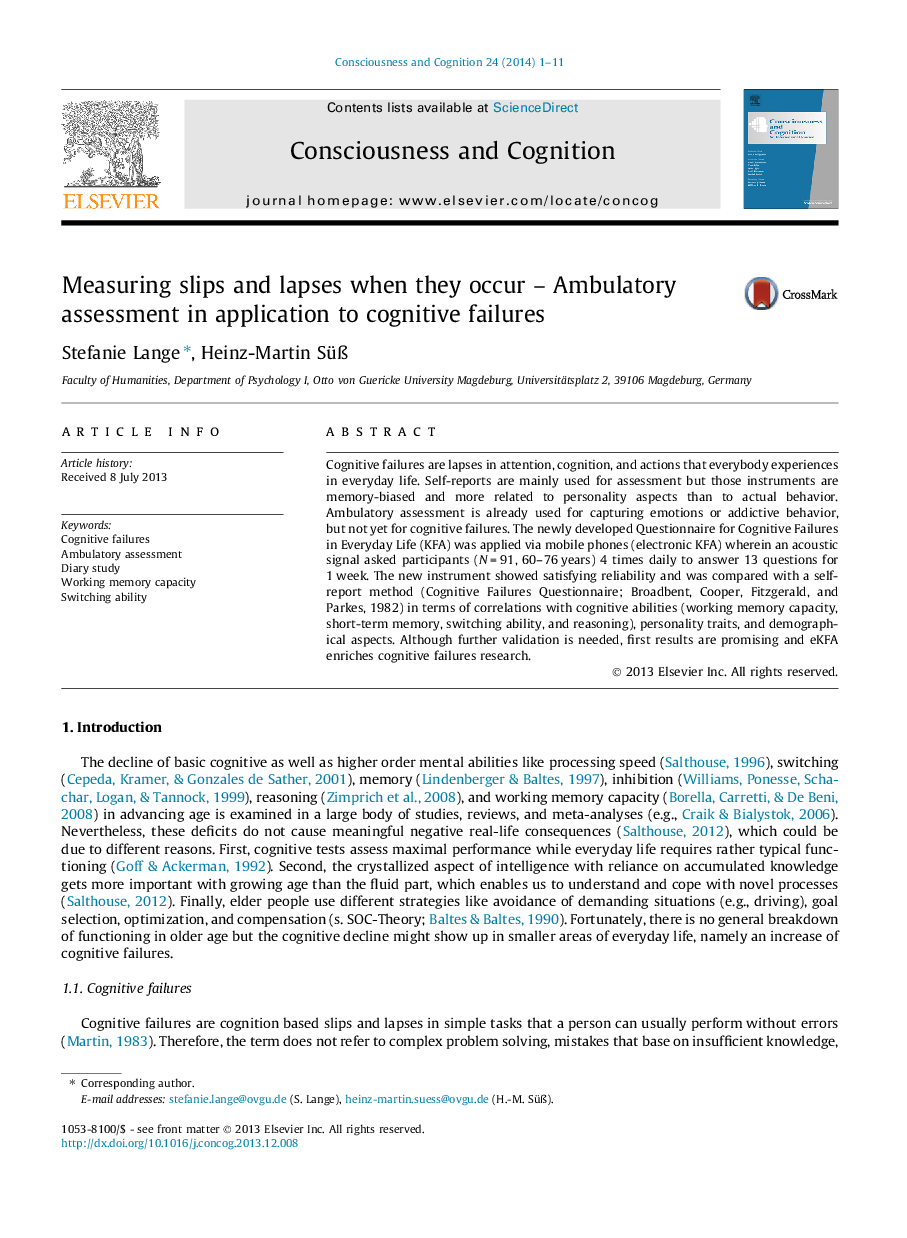| Article ID | Journal | Published Year | Pages | File Type |
|---|---|---|---|---|
| 927577 | Consciousness and Cognition | 2014 | 11 Pages |
•A new instrument for measuring cognitive failures was developed.•Ambulatory assessment was used to reduce retrospective biases.•For 1 week, 91 elderly reported four times daily their failures during the last 2 h via mobile application (eKFA).•Comparison with paper–pencil method (CFQ) was done.•Correlational analysis with cognitive abilities provided promising results but further validation is needed.
Cognitive failures are lapses in attention, cognition, and actions that everybody experiences in everyday life. Self-reports are mainly used for assessment but those instruments are memory-biased and more related to personality aspects than to actual behavior. Ambulatory assessment is already used for capturing emotions or addictive behavior, but not yet for cognitive failures. The newly developed Questionnaire for Cognitive Failures in Everyday Life (KFA) was applied via mobile phones (electronic KFA) wherein an acoustic signal asked participants (N = 91, 60–76 years) 4 times daily to answer 13 questions for 1 week. The new instrument showed satisfying reliability and was compared with a self-report method (Cognitive Failures Questionnaire; Broadbent, Cooper, Fitzgerald, and Parkes, 1982) in terms of correlations with cognitive abilities (working memory capacity, short-term memory, switching ability, and reasoning), personality traits, and demographical aspects. Although further validation is needed, first results are promising and eKFA enriches cognitive failures research.
